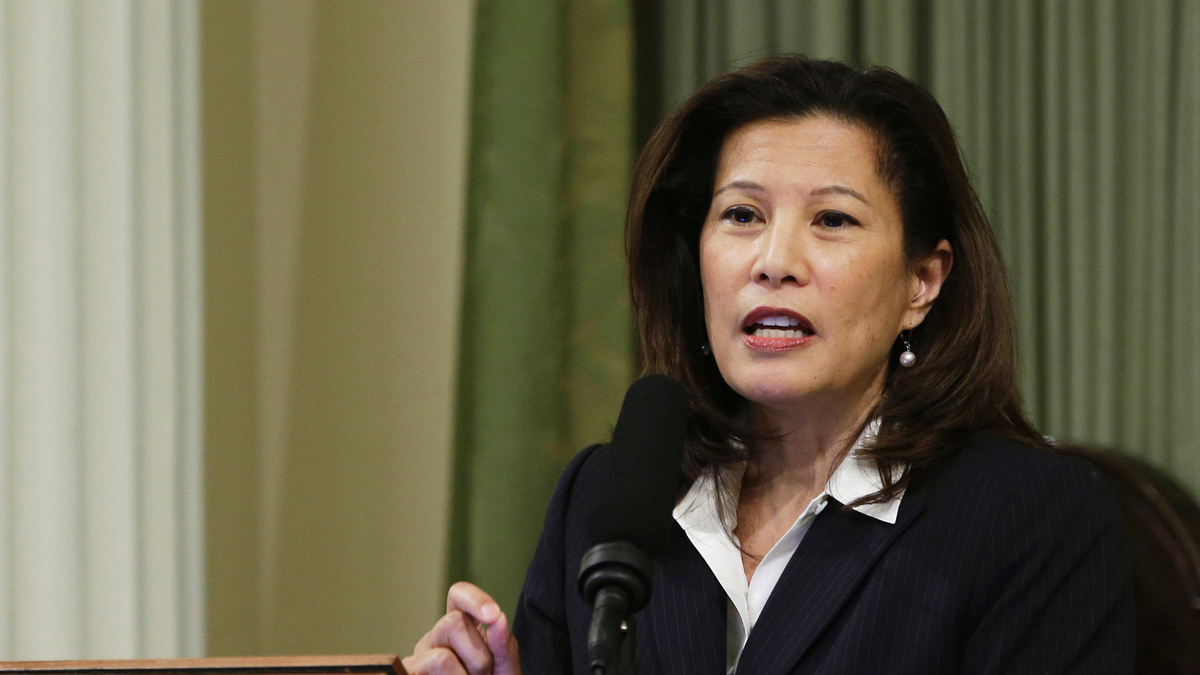
SAN FRANCISCO – Efforts to do away with cash bail in California received a big boost when the state's top judge got behind a proposal to end what critics say is a system that keeps poor people behind bars while wealthier suspects can pay for their freedom.
California Supreme Court Chief Justice Tani Cantil-Sakauye (ta-NEE' kahn-TEEL sah-kah-OO-weh) said Tuesday that instead of cash bail, the state should rely on assessments of defendants' danger to the public to determine whether they should be released.
The proposal endorsed by Cantil-Sakauye is contained in a report by a group of judges that concluded the state's cash bail system "unnecessarily compromises victim and public safety" and "exacerbates socioeconomic disparities and racial bias."
It would require legislative approval to go into law, and Cantil-Sakauye, appointed by Republican Gov. Arnold Schwarzenegger, said the report should serve as a framework for discussions with Gov. Jerry Brown and the Legislature.
"I support the conclusion that California's current pretrial system unnecessarily compromises victim and public safety," she said in a statement.
The proposal is likely to face opposition from the bail industry. Similar bail reform measures approved in New Jersey and New Mexico have faced lawsuits.
Supporters of cash bail say it ensures people show up to court because they forfeit their money if they fail to appear.
Jeff Clayton, executive director of the bail industry trade group, the American Bail Coalition, said states that have tried similar measures have seen defendants commit new crimes.
"The system is continuing to release them," he said. "There's no monetary backstop."
Clayton also raised concerns about how much the bail proposal would cost California taxpayers. The judges' report calls for a significant initial investment of resources for new judges, court staff and infrastructure to evaluate defendants for release, though it doesn't give an exact figure.
Critics of cash bail argue that many poor defendants languish in jail for minor offenses while wealthy suspects accused of serious crimes can often post bail while awaiting trial. They say some of those people could also pose a risk to public safety.
"Someone's arrested, and they write a check or put it on their credit card and they're out," said Democratic Sen. Bob Hertzberg of Van Nuys, who authored a bail reform bill with proposals similar to those made by the judges' group.
Earlier this year, friends and relatives of a slaying victim were outraged when a real estate scion charged with orchestrating the killing was released from a San Francisco Bay Area jail after posting $35 million bail, including $4 million in cash and at least 15 properties worth a combined $62 million.
Hertzberg said Tuesday that he plans to push his bail reform bill forward next year and thinks the chief justice's support and the judges' report will give it a boost.
"It's an absolutely bright-line analysis that says the current commercial bail system does not work and doesn't provide safety," he said.

